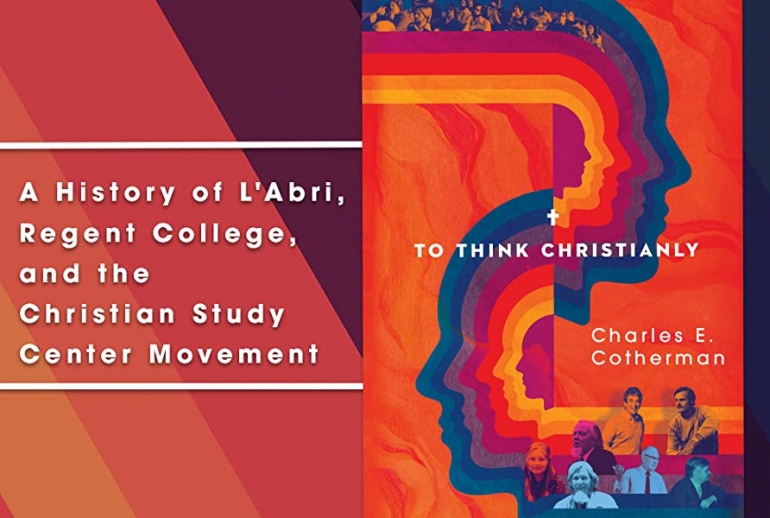Talking about this is hard because it’s so polarizing. Because we are polarized. But we need to talk about finding truth in an age of lies because the status quo isn’t healthy. Misinformation and lies are destructive. Both sides agree that misinformation and lies abound, circulating in society, on social media, and in the news. Nontruth is corrosive both to our own souls as well as to the fragile fabric of relationships and trust that are required to maintain institutions, civil society, friendships, neighborhoods and families. As I see it, a central problem is that we disagree which ideas are lies, and which are truth. We disagree about which experts or commentators or sources of news and evidence are trustworthy, and which are not.
This is a very serious problem. Some people I know are pessimistic about finding a way forward, but I don’t think we should give in to that. I say this not because I am optimistic but because I believe truth transcends the vicissitudes of history.
So, I’d like to make a modest proposal to help us begin to get past the stalemate. A few practical ideas that will allow us to move forward in an age of lies to find and embrace truth. These ideas will not make the lies cease or heal the polarization. What they do, rather, is point a way past the stalemate. A way we can take as first steps out of the shadows of lies and misinformation into more of the light of the truth.
I would add, though this is pretty obvious, that if we are Christians, we really have no choice. Knowing and believing truth is at the heart of our Faith. Our Lord identified himself not merely as a truth-teller but as the truth itself (John 14:6). It’s perhaps the single most explosive claim in all of Scripture. To be a follower of Jesus means that we are called to give ourselves to finding truth in an age of lies, even at cost.
So, for the time being, let’s set aside our differing lists of lies and misinformation. Not that they are unimportant, but because we are considering something else, namely, how to find truth in an age of lies like ours.
What I will do here, then, is identify some insights from the wisdom tradition of Scripture about finding truth. I will include voices from Scripture not as proof texts but so we can together hear voices other than mine. These insights are not a set of rules, or a formula, or some sort of technique. Wisdom doesn’t go in for that sort of thing. Rather, these insights form part of what is intended to be a way of life, a perspective that can be embraced by faith and practiced until it becomes a habit of the heart. If it sounds like common sense, that’s because good common sense is wisdom applied to practical issues of daily life. These fragments of wise living reveal part of what Christian faithfulness should look like in an age of lies and misinformation.
I’ll identify six:
- We are not abandoned
The Bible opens with the image of the Spirit hovering over a void of darkness (Genesis 1:1-2). He has never left, and will not now, even though the shadow of lies and misinformation spreads its toxic darkness around us.
I’ve never walked this way before, never faced this level of distrust and animosity in society and the church, never heard so many nontruths woven into conversations between good friends. This may just be my impression, but in my eyes, at least, the light has grown dimmer.
But I am certain of three things. 1. I’m certain that though I am called to be faithful, the solution to it all doesn’t finally depend on me. Which is a relief. 2. I’m also certain the Spirit is still present, now actually indwelling the people of God. The fact that he is the Spirit of truth (John 16:13) means that in the end lies and misinformation don’t stand a chance even though I may not see it sorted to my satisfaction in my lifetime. And so, 3. I’m also certain there is reason to choose hope and to trust, and to together, as God’s people help one another find and embrace truth as a way of life in an age of lies.
- Truth seeking requires humility
In a Trinity Forum conversation, “Hope and Healing for a Hurting Culture” (02/19/21), Jonathan Haidt and Peter Wehner extolled what they call “epistemological humility.” They mean believing in objective truth while accepting our limited ability to perceive, know, prove and communicate that truth in a way that is convincing to most other people. In other words, seeking and knowing the truth requires humility.
“The fear of the Lord is instruction in wisdom, and humility goes before honor” (Proverbs 15:33). It turns out that certainty can be weaponized, and often is due more to self-confidence than to the surety of our position. A proper reverence before divinity reminds us how we are finite and fallible. Even concerning the truth. This doesn’t imply relativism but humility. We need to beware those who are confidently closed minded, who aren’t open to considering hard questions in an unhurried way, who have everything figured out.
- Truth seeking means listening
“You must understand this, my beloved,” St James wrote, “let everyone be quick to listen, slow to speak, slow to anger” (1:19). Sounds like he was writing advice for the polarized world of the 21st century.
Imagine what America—both inside and outside the church—would be like if this piece of wisdom was followed. I have no doubt that America will not instantly follow James’s advice, but we should as Christians, and that will be a good and healthy start.
Being a good listener means I will want to know why you believe what you do, on what authority you accept it as true and what evidence is available that demonstrates it. And being a good listener means I will be unafraid to submit my own beliefs to the same questions.
Which leads directly to the next insight.
- Listen to the best arguments of the opposition
Years ago, my friend and mentor Jerram Barrs served as a Worker in L’Abri Fellowship. When a student he was tutoring said they wished to become a Christian, Jerram always assigned them to first read Why I am not a Christian by Bertrand Russell. Perhaps today he would assign something else by some other convinced, thoughtful non-Christian, but that isn’t the issue here. Jerram’s point was to have the student consider the strongest, best argument on the other side. If we can’t respond to the best arguments against what we believe, honesty and humility requires further searching.
“The one who first states a case seems right,” the Hebrew proverb says, “until the other comes and cross-examines” (18:17). What occurs in a courtroom applies to daily life as well. Almost any story or theory can sound right until the best arguments on the other side are considered. This tendency is amplified today when social media and the internet permits the formation of online groups to promote almost every idea, no matter how absurd. We should love our Lord, the Truth, so fully that we are unafraid to intentionally seek out and listen to the best arguments on the other side.
- Listen to multiple voices
Closely related to considering the best arguments on the other side is the notion that listening to many voices is better than only listening to one or a few. As the proverb says, “in abundance of counselors there is victory” (24:6, see also 11:14). If I am going to sort out the misinformation and lies, I will have out-read and out-think the pundits and politicians—and even my friends. And since I can’t do it all by myself, I’ll do it in community with trusted, humble, thoughtful friends who are on the same search.
- Good listening asks discerning questions
“Do you see someone who is hasty in speech? There is more hope for a fool than for anyone like that” (Proverbs 29:20). Finding the truth is not a quick process, but this is not appreciated or encouraged in the age of lies and misinformation. Bullet points are repeated, and we are urged to make up our minds. Now. The case is clear.
Better to not be hasty, to slow down and ask some simple yet probing questions and reflect carefully and unhurriedly on the answers:
As objectively as possible, what is being communicated? On the basis of what evidence and authority(s)?
What is made attractive? How? Should it be attractive?
With what do you agree? Why? What evidence and authority(s) do you have?
What would you wish to challenge? Why? How can you challenge it if you are to speak in love?
How does this mesh with the narrative of Scripture and reality, namely, creation, fall, redemption and restoration?
How can we as Christians best speak and live out the truth as exiles in our broken and increasingly pluralistic and post-Christian world—more Babylon than Jerusalem?
So then…
The six insights I have proposed here will not turn everything around. Nor will it erase the lies and misinformation and make everyone believe the truth. But it is a beginning for those who wish to be truth-seekers and truth-tellers. The beginning of a path forward. And even if just a few of us walk that path, perhaps God will be pleased to use of faithfulness and multiply it by his grace.
“So then,” the apostle commands us, “putting away falsehood, let all of us speak the truth to our neighbors, for we are members of one another” (Ephesians 4:25, see also Zechariah 8:16). That isn’t easy. Putting away falsehood in an age of lies and misinformation is a rigorous task that requires time, effort and attention. And it must be pursued within community because only then do we have any hope of considering more of what needs to be considered. It still won’t be exhaustive and perfect, but we can pray for a proper humility as we continue our search for truth across all of life and culture.
And speaking of prayer, our yearning to be people of truth who resist the flood of lies and misinformation must be steeped in prayer.
Gracious Father of light.
Your word in Scripture is unsparing for your people who find themselves living in an age of lies and conspiracy theories. “Lying lips are an abomination to the Lord,” your word says, “but those who act faithfully are his delight” (Proverbs 12:22). Please hear our supplication that your Spirit halt the pernicious spread of falsehood in our society and your Church so that the divisions and distrust that drive us apart may be healed. Please grant us humility, so that we will not claim more than we know and admit when we don’t know. Keep us from distancing ourselves from neighbors who believe absurd and dangerous things. Help us to outdo one another in reading and listening widely and with discernment, always willing to hear opposing arguments and the voices of a multitude of commentators and thinkers. Help us to speak the truth in love or to not speak at all, for you are truth and love, and we are your people. Help us to use social media with gracious virtue, always pausing to reconsider before pressing Send. Father, we pray all this in the name of Jesus the Christ, our Lord who we know is the very personification of wisdom, who with you and the Holy Spirit dwells in light that is unsullied by any shadow of falsehood, world without end.
Amen.
Photo credit: Photo by Michael Carruth on Unsplash



